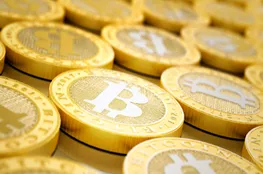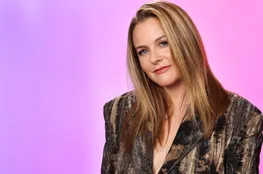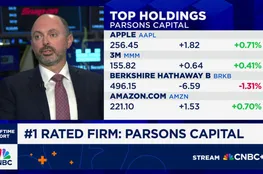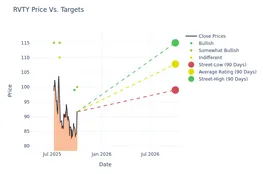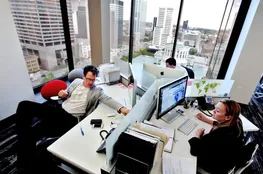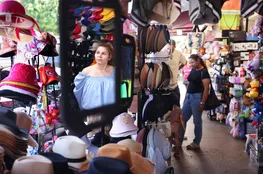In recent weeks, the U.S. economy has experienced volatility and uncertainty with on-again, off-again tariffs, continued inflation, and drastic stock market reactions. For many consumers and businesses, this uncertainty makes financial planning difficult. Erin Shaw, the Indiana and Louisville market manager for J.P. Morgan Private Bank , told The Courier Journal that right now, consumers are "concerned." "When there’s uncertainty in the market, no matter how much you understand what’s going on, or really pay attention, and no matter what your level is, there’s still that concern," Shaw said. "You see things that can impact your family and so there’s concerns there." Shaw’s most basic advice for people looking to prepare for the continued economic uncertainty is to start planning now if you haven’t already. "Everybody should have a plan," Shaw said. "I think it’s so important because it helps you really frame what’s going on with your particular situation." As consumers and business owners to try and understand what their purchasing power is, and how the constant economic whiplash trickling down from the federal government will impact their daily lives, The Courier Journal sat down with Shaw to discuss how people can prepare financially for the economy ahead. "I would say the biggest thing too, and I know it sounds cliche, but don’t panic," Shaw said.
A tariff is essentially like, but not, a tax ... that’s how we explain it for goods and services. ... And [a tariff] ... could be potentially passed on to the consumer.” Shaw added that those in the business community are "concerned" over the possibility of taxes on imports or exports because that’s where they get their supplies. “Again, it always goes back to the fact that the market does not like uncertainty, people don’t like uncertainty.”
I think we’re always planning for potential volatility. Additionally, Shaw said for people preparing for retirement in the current economy, there’s two big picture things to consider. "Number one is ... what does your cash reserve look like? So, in the event that something was to happen ... you have that cash reserve, so if you need to take from there, or you need to liquidate anything. ... I would say secondly is making sure you’re taking risks off the table.”
If you’re going to be in the market, it needs to be long term. And if you look back five to 10 years, and you look at what the market has done, that’s where you get that reward. We always like to share this when we’re doing reviews with clients; volatility is obviously very, very normal. And the amount of times that we have a drawdown of 10% plus per year ... it’s just you don’t remember, because you only remember the number and you remember your high.”
It’s funny, because it depends on who you talk to. We’ll hear things, or you hear things in the news, that inflation is at a certain percent, but then you go to the grocery store, and ... I don’t know about you, but candy right now and bags of chips are like, half the size they used to be, and they’re more expensive. Everything ... it’s so much more expensive, for less. And so ... people are spending less. I really do believe they’re just trying to be more cautious.”
A 401(k) is a vehicle for saving ... it can be related, and it can’t be related. So, it just depends on how you’re investing. ... It’s not directly correlated to the market, but you can absolutely invest now and again, those are long term vehicles, because you don’t typically start withdrawing on them until you’re 59 and a half. ... You should absolutely (open a 401(k)), especially if your company matches, you can get that free money, essentially.”
Check your allocation ... The amount of times that I’ll see somebody that’s completely out of whack, because you’re saving, but not paying attention to it. So, I would say absolutely check that.”


